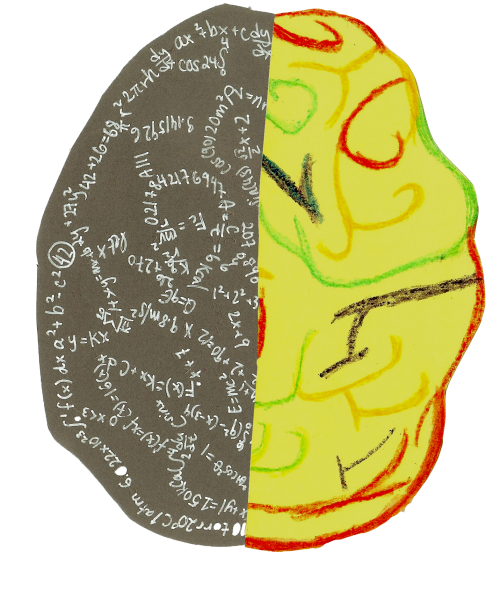or whatever reason, MVHS puts a weaker emphasis on humanities compared to STEM . Maybe it’s because there isn’t one right answer. Maybe it’s because it requires some guesswork and analysis. Maybe it’s because it requires a lot of reading and not a whole lot of doing. Maybe some people think it’s just boring.
This discrepancy is apparent not only in the number of clubs that promote STEM careers and activities, but the vast differences in the number of AP and honors classes offered to students each year. Honors courses in STEM classes such as Chemistry Honors and AP Computer Science become available to students as early as their sophomore year, while students have to wait until junior year to even be offered honors classes in the humanities like American Literature Honors and AP US History. MVHS lacks some AP courses that are offered in other schools in other nearby districts: AP European History, AP Psychology, AP Human Geography and AP World History. Students are allowed to explore the sciences early, but receive few options for the same level of exploration in the humanities. There is a push towards greater involvement in math and science and as a result, the strong desire to leave the humanities like the books you read in fifth grade: collecting dust.
The problem doesn’t only lie in the numbers, however. It’s that fewer students appear willing to participate in humanities activities and that their success goes unnoticed by the student body. If you think this isn’t true, just think about the last time there was an announcement for a student who won a writing competition. At a more basic level, we fail to respect winners of humanities-related competitions the same way we respect someone who has won a STEM competition. There is a lack of interest for humanities-related competitions while every Club Promo Day is a meat market for nearly every kind of STEM competition you can imagine.
There is a lack of interest for humanities-related competitions while every Club Promo Day is a meat market for nearly every kind of STEM competition you can imagine.
Part of the problem may stem from the fact that many parents believe that there are fewer and fewer jobs available to students who are not pursuing STEM-related careers. This is blatantly incorrect. Journalists, technical writers, public relations managers and human resource specialists are just a few of the various job opportunities in the humanities. In fact, deterring students from studying the humanities have little to do with job prospects and everything to with salary.
Although concerns with pay have some merit, money should not be the reason why we avoid a field. Especially in high school and college where we have the opportunity to explore a multiplicity of ideas, we should study in a field because we are passionate about it. Even Silicon Valley, tech giants like Steve Jobs dabbled in the humanities.
In fact, Jobs’ explorations in calligraphy during college led to the Macintosh’s famously beautiful typography. Even if you’re into JAVA, you shouldn’t hesitate to take a creative writing class. You never know when it’s going to come in handy.
The humanities bridge the gap between the source of the information and the general public. True, science and technology bring innovation that make our lives more convenient, but without writers, their inventions may well have not happened. Humanities help make immensely complicated findings into something that people will actually care about and understand. We need people in STEM to keep up progress in their fields, and people in STEM need people in humanities to make STEM accessible to the general audience.
We need to start small, like supporting clubs such as NEHS that are dedicated to the humanities and offer those clubs the resources and support needed to participate in national competitions or research. Even STEM students can benefit from a humanities class on rhetoric, helping them strengthen their persuasive speaking, an invaluable skill in any field. The problem lies in the students’ mentality, not the school.
Students need to shed the mentality that the humanities are less important than stem. The two are equally important.





